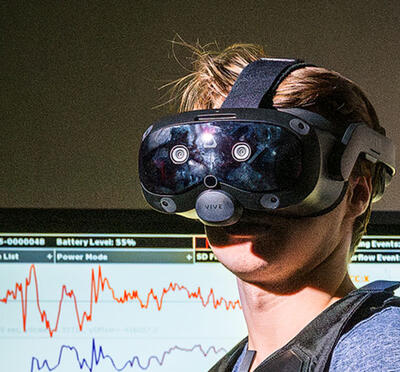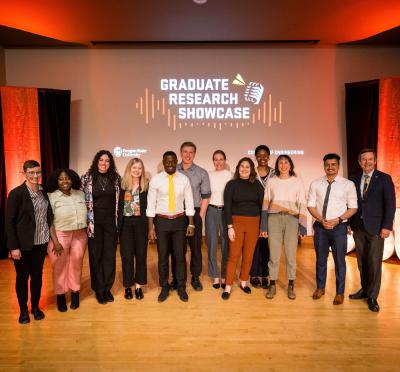In 2018, Ellie Parker landed an internship at NASA Ames Research Center in Mountain View, California. A rising junior at the time, she worked in the aeromechanics branch, helping to test Ingenuity, the Mars helicopter, in the world’s largest wind tunnel.
“It was one of the coolest jobs you could have,” Parker said. “It was one of the very few times where I really sat there and thought maybe I should consider going into engineering rather than the military.”
Parker was commissioned into the U.S. Air Force as a second lieutenant after graduating in December 2020 with a degree in industrial engineering. In June, she reported to Vance Air Force Base in Oklahoma to begin pilot training.
Parker says she’s always been an “adrenaline junkie” and may be the rare person who actually

loves heights. Growing up, she sought thrills such as bungee jumping or skydiving. Before she could drive a car, Parker learned to fly in a small Cessna, and by 18 had earned her private pilot’s license.
“I always knew flying was something I wanted to do for more than a fun hobby,” she said. “And I really liked that the Air Force supported technical degrees like engineering. It also provided a unique path and career choice for flying.”
A few years ago, Parker was in the middle of her first grueling summer at the Air Force Academy when a broken elbow rerouted her plans. With a medical turnback, she had the option to return and repeat her summer training the following year if she wanted to continue at the academy. Parker decided to look for other ways to achieve her dream and decided on Oregon State, where she was accepted to the ROTC program. Looking back, she says she wouldn’t change a thing.
“ROTC was a huge, formative part of my college experience,” she said. “It’s this whole, sometimes 20 hours a week, extra thing that you’re doing on the side. To be with people who spend early mornings and the late nights running around in uniform — it was pretty incredible. It's such a unique group of individuals. I met some of my lifelong friends through the program here at Oregon State.”
In addition to heights, Parker’s always been fascinated by systems. At the airport on family trips, she’d find herself curious about how the baggage was transported behind the scenes, how people were ushered from terminal to terminal, and why things were organized the way they were.
“Everything’s a system of some sort,” she said. “No matter what you’re doing, whether it’s working in a technical field or in the military, there are always ways to look at the system and figure out a way to improve it, which is what industrial engineering does. I feel like it’s a very useful skill to have.”
When Parker arrives in Oklahoma this summer, she will combine academic study along with flying in a variety of aircraft before eventually specializing in fighter jets, cargo planes, or helicopters. She’s heard training is good at helping pilots learn how to pull out important facts from information overload and manage their time in stressful situations. Overall, she’s just excited to continue pursuing her dreams of flying for the Air Force.
“I like engineering because there’s never one correct way to solve a problem,” she said. “And I think that’s one of the hardest things that I learned at college, but also one of the most useful. There’s no right path to get to the end. It looks different for everyone.”



